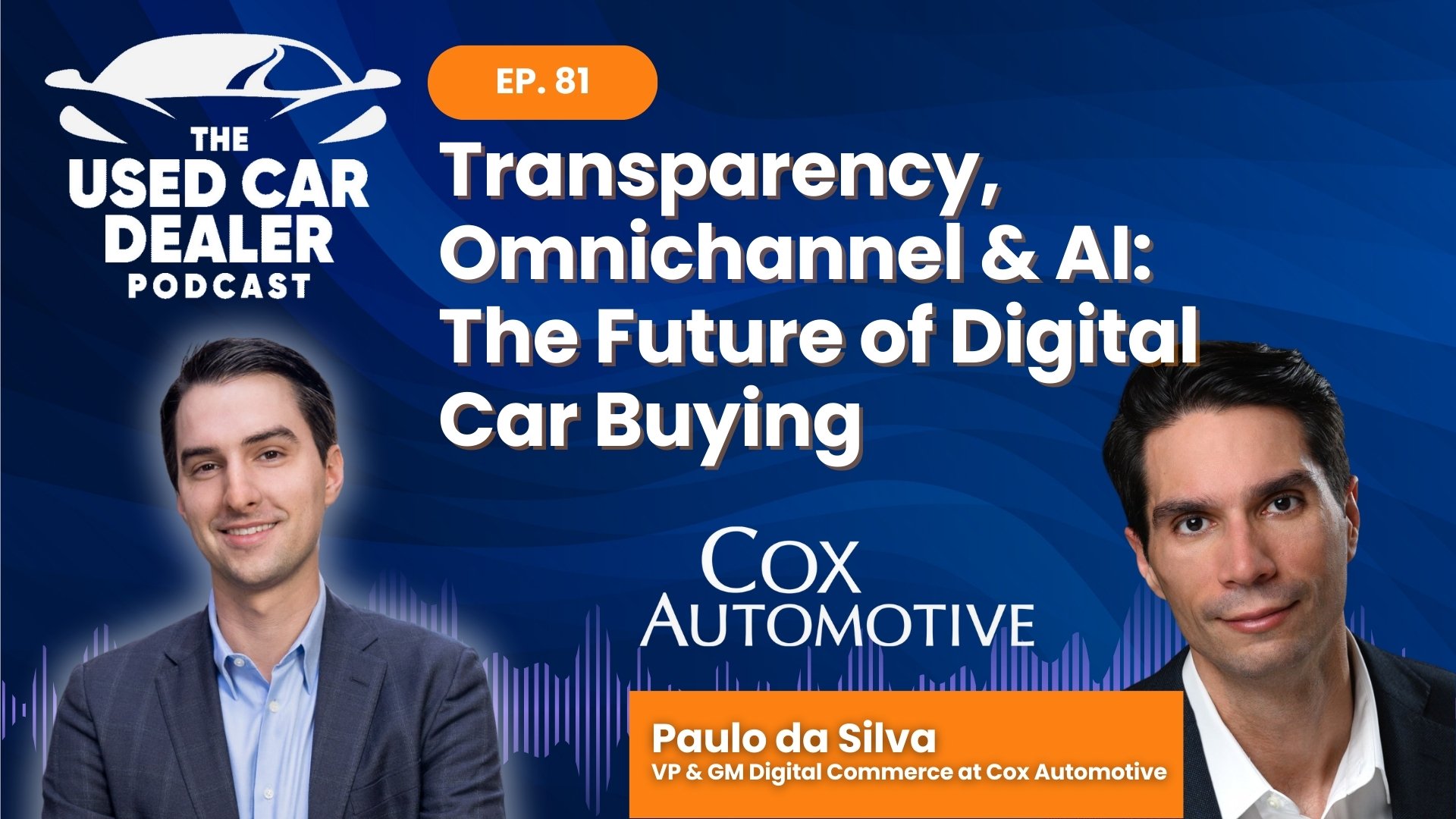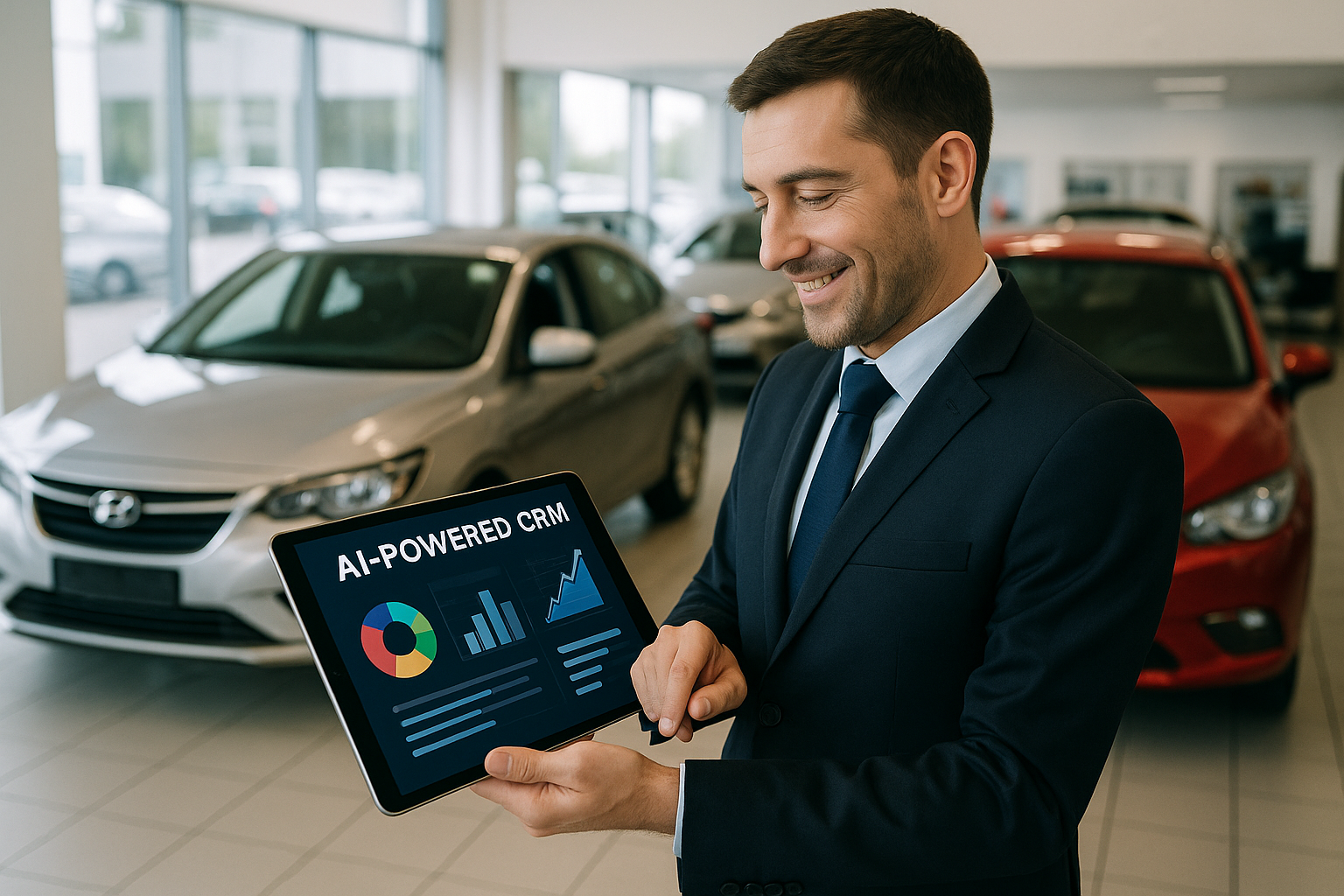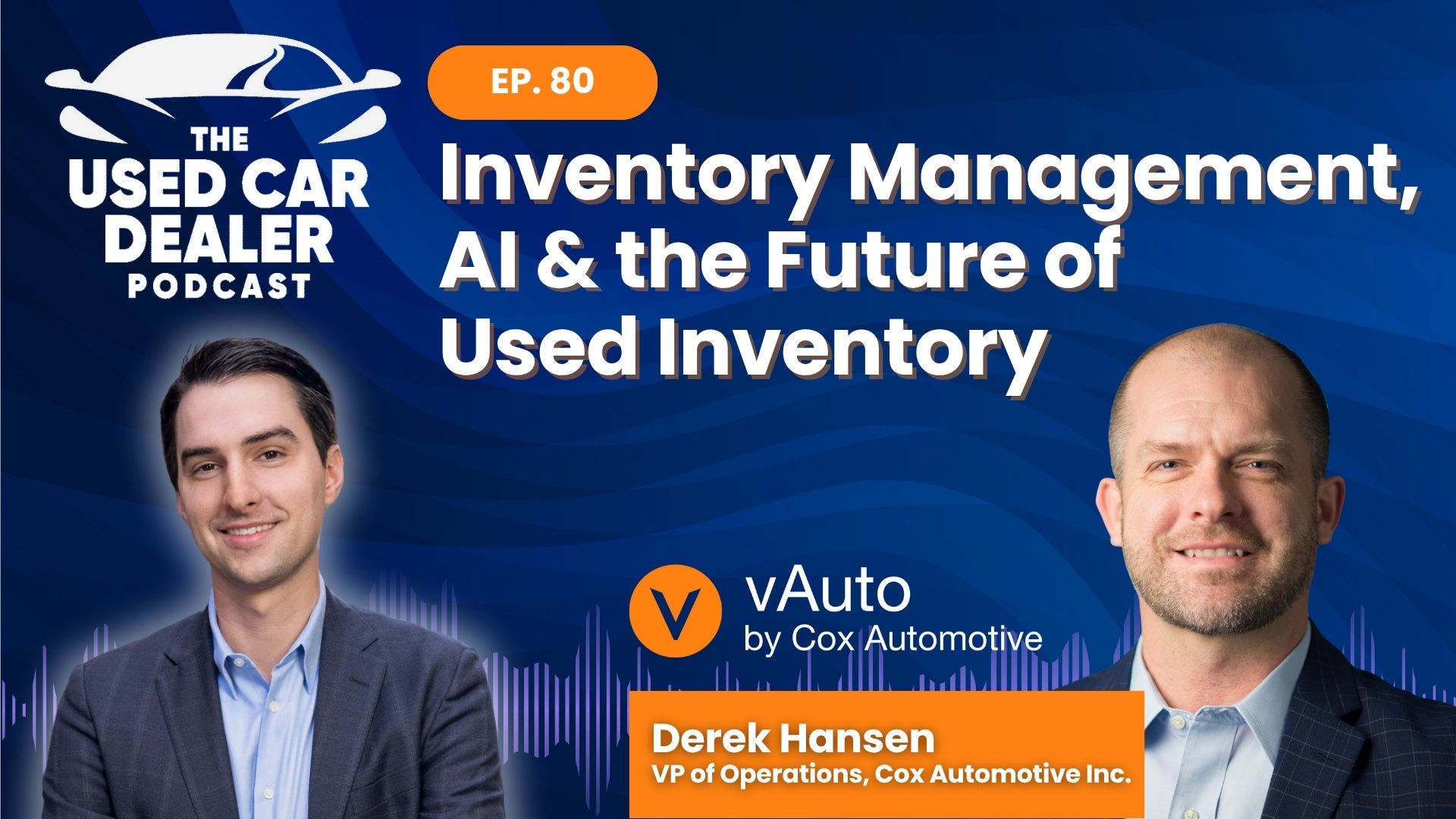Zach: Hello, Zach here and we have a great guest on the podcast today, Ilana Shabtay, who is the Director of Marketing at AutoLeadStar and a podcaster herself on the Inside Auto Podcast, Ilana thanks so much for joining today.
Ilana: Yeah, no problem. I'm excited to be here. Thanks for having me.
Zach: So let's get started and for those of us listening, talk about how you got into the car business and the experiences that led you to AutoLeadStar.
Ilana: Sure and we were just talking about how Inside Auto Podcast always starts the same way, the best way to start a podcast. So I actually got into the car business like most others that I've spoken to by accident, I started working for a company called 40 Nuggets that was doing conversion optimization for SMBs. So for like small, medium businesses, and the space was really saturated, there was a lot of competition, there still is a lot of competition in that space. And so we really wanted to find a vertical. And I'll never forget this day, it was back in 2016. We were like six people at the company, maybe seven people. And we were brainstorming different verticals. We consulted with some of our investors, we basically decided to pivot to automotive overnight. We did some tests, but it was basically overnight, we rebranded everything. I remember we like built a website overnight, we learned everything in like a month about the automotive industry. We went we visited car dealerships, we went to NADA in 2016, which was quite a shock for someone coming outside of automotive. That’s kind of how I got into the car business because I was associated with this company that pivoted to automotive and then it was really nice, because I was part of that journey in moving to automotive. I think the biggest takeaway from it was that while outside of automotive, the space is pretty saturated inside of automotive, there was no real technology that was doing what we can do. And there was a lot of value that we were able to bring to the industry.
Zach: That's a great story. And I love how everyone kind of accidentally stumbles into the auto industry. So, 2021 it was a roller coaster of a year for dealers, talk to me about what you observed from your lens at AutoLeadStar. and the way dealers have shifted and changed their inventory and brand marketing.
Ilana: Yeah, so I think 2020 and 21. As we know, they've been really hard years, what we saw is that the dealers had to be flexible in their marketing strategy. And, and that was changing for a lot of dealers that were very rigid prior. So let me give you an example of that, because I think it's a little bit hard to follow without one; dealers would, before the pandemic, let's say, and I know that there's other challenges that have arrived since then, like inventory challenges and such, but let's start with the pandemic. You know, they were setting a budget for Google, setting a budget for Facebook, and that was very rigid, right? Every month, it was like, Okay, I have $5,000 for this $10,000 for this. But we saw that dealers were more fluid and more flexible and more dynamic with their budget allocation. And this is just an example, we're actually way more successful, because you never know where the market is going to be because of all these changes in all of these challenges. And if there's more opportunity in Facebook, if you have a total budget of 15,000, you want to be able to move that budget to Facebook in real time. So what we saw, and this is, and this is just one example. But this goes to inventory and marketing strategy in general. And I think a lot of dealers are starting to move toward that and move to more just dealer tech adoption, which we really like to see. So that's one of the biggest changes, I would say, I thought, at least from my expertise in automotive.
Zach: So in that same wavelength, what are some of the common dealership marketing mistakes that you've seen this year?
Ilana: So I guess it would be the flip side, right? The biggest mistake we saw is dealers that were not flexible, and were not dynamic and just totally solely relied on on manual. Dealers really need to be savvy with how they invest their marketing dollars. Right now, I know there's a lot of talk about how, you can you can pause all of your spend, because there's no inventory or the pandemic. I think very differently. I think as long as you're savvy and sophisticated with your spend, you should keep it for branding. And you know, you still want high gross on your inventory. So make sure that you're the dealer that people are coming to. And so not having that flexibility in that infrastructure set up is really one of the biggest mistakes. There's also the idea of being super hyper targeted and one to one personalization, which I really don't think you can do on a manual level. So dealers that are still doing everything manually and that aren't taking advantage of Facebook and Google's best algorithms because they have tons of algorithms out there that you can take advantage and leverage from a technology perspective dealers that aren't doing that aren't reaching customers on a one to one level. And that's a that's a really big mistake for today's shoppers.
Zach: What are you seeing the most successful dealers have the packaging differently when it comes to marketing, their dealership and inventory?
Ilana: So besides for being flexible, and which I know we're talking about a lot on this podcast, there's something that we're seeing recently that I think is really important, and really interesting to point out, because it's different than what I've been seeing, at least in the five years that I've been in automotive, which is that dealers that are allocating a specific marketing budget to something like age inventory, or Vin specific models that are just a little bit harder to move, right, they're just stuck, they're not as easy to sell. We're seeing that dealers that are allocating a specific budget to that. And to really put focus on a marketing campaign that pushes those vehicles are out are seeing really nice numbers and really successful. And I think that shift comes with some of the inventory challenges that we're seeing, right? Like, we can't focus all of our marketing and all of our inventory right now, because people are coming to our site and falling on anything that they can get. However, there's still vehicles on my lap that have been on my lap for 200 days. For example, let me focus my efforts on that, so that I'm maximizing my marketing.
Zach: So the average used car dealer, think of them as like an SMB. And when it comes to getting their marketing started, let's say today, maybe they're using third party lead providers, and they have a basic website. What's your advice for them to go from level one to level two, in start getting more into marketing beyond third party lead providers?
Ilana: I love this question, because I feel like used car dealerships, they're in a very unique place, because every single car is different, right? So when we think about new vehicles, you can do a little bit more with campaigns on a one to many, because if you know you have a new campaign running on a Ford F 150, and that Ford F 150 is sold, that campaign could definitely still run because it's relevant for your other cars. With used cars, it's like you really need to have a creative campaign around every single car. And that's very hard to do manually. So I would say for a used car dealership to be successful in their marketing strategy, even if they're just starting, it would be to leverage technology and machine learning so that they can have that scale speed and specificity and have that very creative marketing campaign and market every single car as if it's their only one, which is just simply impossible to do manually. And I think it's also important to note that based on our research our internal data, and a lot of times, because if you have a marketing strategy, that's tech driven, then your budget is going to be way more efficient. So while we think about like, oh, test driven marketing must be more must be much more expensive, it's actually quite cost effective. So for these dealers just starting out, if they don't have a big budget, this is actually exactly where they should be going. Because they get that specificity. They get those creative marketing campaigns, and every single car gets it gets its attention, because it's not manually done. And it's actually way more cost effective efficient, because the machine is constantly looking for the best lead at the best cost at any time of day. So they'll be able to cut costs with texture marketing.
Zach: So why is the customer buying experience so important post pandemic?
Ilana: So I love this question. I talk about this a lot. I read about this a lot. I think when a shopper buys a vehicle, they're not buying a vehicle, they're also shopping, right? It's a shopper. And it almost doesn't even matter if your dealership has the car that those shoppers looking for at the right price. Because if the shopping experience is fragmented, or interrupted or just unpleasant, you're going to lose that shopper because at the end of the day, automotive doesn't dictate you know, what a shopping experience should be our ecosystem. That's what people expect. And so, again, I think it's obviously important that you have the inventory and you make that match, you find the right shopper. But again, a shopper is looking for an experience, not just a car. And so if you want to keep that customer for life, the experience has to has to be really good from the second that they start looking on your site until they come into the store or until they order online, whatever that process might be. It's got to be streamlined, and it's got to be really tailored to the shopper. And again, if you have even if you have the inventory, it almost doesn't matter.
Zach: So I definitely agree with that point, I talk a lot about customer buying experiences as well, especially in the used car dealer space. So let's talk about some hot trends in auto, and I want to get your take on them. So first is online dealers like Carvana, and Vroom that have gone public recently. And the second one is subscription services for a vehicle. So wanted to get your take on both?
Ilana: Sure. So I think Carvana and Vroom have gotten a lot of attention, as we know, over the past year, and I think it almost it's not even about the digital sell online, even though that's what we're all focusing on because technically, dealers have the infrastructure, for the most part to do that. And OEMs are putting in the infrastructures to do that, I think what's amazing about Carvana, and Vroom is their marketing. And that's really what we've been talking about up until now. Right? So they've basically set up their their infrastructure to be similar, like booking.com, or Expedia. And dealers just aren't on that at that level. But that's a super powerful way to get to the consumers. And so when you have a sophisticated marketing structure, you can get to anyone. And that's what dealers need to compete with. And I feel like we don't the conversation isn't really around that lately, because it's all about, oh, you could buy a car online, you can buy a car online, it's not really about that, again, it's about the shopping experience, which we spoken about. It's about having that really connected marketing infrastructure in place, and making sure that all of the products that dealers are using are aligned so that you can actually do that, to the miracle of these companies like Carvana, and Vroom and subscription services even because it's the same type of model is that is the marketing. It's not even really anything else and being able to market to customers and make it really exciting. And again, not siloed meaning aligned. So that's what I think is kind of what I can speak to when it comes to those trends. Other than that, I mean, I do think that there are a lot that dealers can learn from those companies on how they are speaking to customers. And I've seen dealers talk about this before. But I think the emphasis on the competition is not in the right place.
Zach: Agreed. And I think it could also be distracting for dealers, because both Carvana and Vroom they're not is focused on profitability. They're focused on customer acquisition. They're publicly traded companies. So almost a different animal in some ways, but agree they do a good job on their marketing efforts.
Zach: So what are your predictions for the rest of 2021? In terms of the used car market or the automotive industry as a whole?
Ilana: I think the fluctuations of inventory are going to, they're just going to dominate the narrative. And this is where flexibility comes in. Because we're not going to know what's going to happen. And when this used car bubble actually bursts all these car dealerships that spent a lot of money getting the inventory that's so scarce right now, how are they planning to get that out at the same gross or higher? How are they putting it out at a profit? Um, and I don't know if dealers are necessarily thinking that far ahead, because it's all about the inventory crisis right now. But I think dealers really need to set up for success and be sophisticated in their marketing in their sales to figure out how they're going to stay, you know, up ahead of the curve, when whatever happens with the inventory happens. So again, I know that's not the most insightful answer, but I do predict that at the very least, whatever happens with the inventory is totally going to dictate the narrative for the rest of 2021.
Zach: I think that's well put, and a futures question. What are your thoughts on EV vehicles and their impact on the traditional dealer model? Of course, Tesla has taken mindshare. A couple EV companies have gone public through SPACs. What's your thoughts?
Ilana: So yeah, this is from what I learned mostly everything that I know about EV's on that podcast with Matt from Shift so I have to credit him for all of my EV information. But I actually don't know if it's going to change the dealership model because it's just basically like instead of selling the cars of the show, and now they'll just be selling EVs so I don't know if it's necessarily going to impact the dealership model other than perhaps like, figuring out how to have incentives like at home install battery stations and things like that like so the little things and I'm sure parts is going to be affected. I think that indicates something really powerful for the industry, which is that the industry is always innovating and the industry is always progressing. And for dealerships, this is a wake up call, because if they're part of this industry that's always innovating. And if they're not setting up the infrastructure to be part of that they're going to be left behind. So while I don't think EV's are going to drastically change the dealership model, I think it's a really good way to kind of show how the industry is so progressive and and dealerships have to have to get on board with that.
Zach: Lastly, what is AutoLeadStar doing that uniquely helps market and sell used cars?
Illna: So I think we touched on it a little bit before, which is that used cars are very different than new car strategy. And every single car is really unique and has to be marketed as if it's basically the only car in the world they all kind of need their own campaign. AutoLeadStar has the technology and the data to put out the experiments and make sure that we're getting that one to one shopping, you know, that match between inventory and shoppers. And that's especially true with used cars, I think it's really important that you're leveraging data, you're leveraging customer data, website, data, incentives, OEM data, and you're figuring out that that perfect message and making that match and of course, leveraging Google and Facebook, and making sure that that's aligned with the dealerships business goal. The other thing is that we're releasing now a product which is in beta, but it's driving a lot of sales, which is going to support dealers on allocating budget to help get h inventory off the lot. And a lot of times dealers, it's the used car inventory that they want to get off more so than the new and having a VIN specific marketing campaign that's focused on those vehicles. And a specific budget that's allocated can help you sell more cars and so on. We start focusing on that right now as well.
Zach: Awesome. And I loved having you on the podcast today and your insight about marketing. Thanks, Ilana so much for joining the Used Car Dealer Podcast today.
Ilana: It was great. I'm happy to come back whenever


.png)




.jpg)
.jpg)
.jpg)
.jpg)

.png)
.png)
